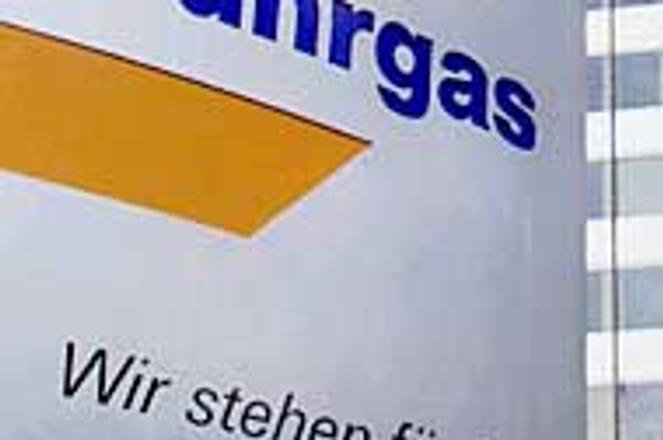RUHRGAS'S headquarters in Essen, Germanyphoto: TASR
THE PRIVATISATION Commission for the sale of a 49 per cent stake in gas utility SPP looked set to recommend the government accept an offer of $2.7 billion for the firm on March 8.
A consortium of German, French and Russian firms had made the bid February 28. Although some politicians called the offer too low, commission member Vladimír Tvaroška said it was "more than we expected". He predicted the commission would advise the government approve the sale.
The consortium - Gaz de France, Russia's Gazprom and Germany's Ruhrgas - was the only bidder to submit an offer in the SPP tender. The 49 per cent stake and management control at SPP would give the group a grip on the main route for Russian gas to western Europe.
Deputy Prime Minister for Economy Ivan Mikloš also called the offer "good", saying it was "around 40 per cent higher than the original price estimate offered by the same consortium some half a year ago."
However, Agriculture Minister Pavol Koncoš, head of the ruling coalition SDĽ party, said he thought the government should demand from Sk180-200 billion ($3.8-4.2 billion) for the share, or at least reduce the size of the stake it was giving for $2.7 billion.
Smer party leader Robert Fico also called the bid disappointing and vowed to propose a motion to parliament not to accept the offer.
"They have no clue what the real value of the company is," responded Tvaroška. "I can't say what they're saying is bull, but they would have no way of knowing."
However, in the wake of the political criticism, the committee for the sale asked the state's advisor, Credit Suisse First Boston, to negotiate the sale agreement - including possibly raising the price - with the bidding consortium before the deal was presented to the government for approval.
"The committee has asked the adviser to continue in negotiations with the consortium about transaction documents," CSFB Director Michal Šušák told a news conference.
"We will do everything possible to complete all negotiations by Friday... There is room for further negotiations, but I will not say now how large this space is or what aspects can be negotiated," Šušák said.
The final word on approving the sale rests with the government.
The deal is a key pillar of the government's economic platform, as the proceeds will be split between retiring state debt, significantly improving the state's fiscal position, and financing long-delayed reform of the troubled pension system.
However it has been marked by uncertainty and unresolved issues from SPP's past that analysts said could have kept the price from being higher.
In January and February pressure increased from the SDĽ to change the tender conditions and sell off only 24 per cent in SPP. While Tvaroška did not say the political uncertainty had affected the price bid, "it certainly didn't increase the offer."
Partly because gas prices on the Slovak market are still capped by the government, SPP has also never realised its profit potential, averaging Sk5.3 billion annually in after-tax profits from 1996 to 2000. Gas sales even to large industrial customers were loss-making last year.
SPP's long-term contract with Gazprom, through which the firm supplies 70 per cent of the Russian gas used in western Europe, ends in 2008. Gazprom has over the past several years been exploring alternatives to sending gas through Slovakia, including building a new pipeline.
Finally, what police suspect are several billion crowns in outstanding promissory notes signed by former SPP director Ján Ducký, who was murdered in 1999, have also increased a sense of the unknown at the firm, said analysts.
"It was disappointing that there was only one bid, but what matters is that the quality of the bid was high," said Jeff Gable, an emerging markets analyst at Deutsche Bank in London. "The amount offered is high enough for a sale, and the company would be going into the hands of people who would run it well."
Gable also dismissed claims by Slovak politicians that the price should have been closer to the Czech gas utility Transgas, which fetched about Sk160 billion when sold by the Czech government in December last year.
"The Slovaks were offering 49 per cent in SPP, the Czechs 97 per cent in Transgas. And Slovakia, not to offend anyone, isn't the Czech Republic, and has a significantly less liberalised gas market."
The US Williams and French TotalFinaElf firms did not bid in the tender; nor did the Italian Snam. The weekly paper Trend reported that Snam had withdrawn from its earlier planned consortium with Gaz de France and Ruhrgas after refusing to pay its share of the bid, allowing Gazprom to take its place.


